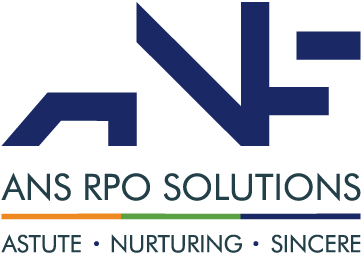In today’s globalized world, many organizations are turning to offshore recruitment services in the USA to access a broader talent pool, increase efficiency, and reduce costs. However, managing offshore recruitment teams comes with its unique set of challenges, including time zone differences, communication barriers, and cultural nuances. In this article, we will explore best practices for effectively managing offshore recruitment teams to ensure seamless collaboration and successful talent acquisition.
Effective Strategies for Managing Offshore Recruitment Teams
- Address Time Zone Differences
One of the primary challenges when managing offshore recruitment teams is dealing with time zone variations. To overcome this hurdle, establish clear expectations for working hours and overlap periods between onshore and offshore teams. Identify critical meeting times and synchronize schedules to maximize collaboration.
Utilize scheduling tools that display multiple time zones to avoid confusion and ensure all team members are aware of each other’s availability. Additionally, consider implementing a staggered work schedule to provide continuous support across different time zones.
- Communication Methods
Effective communication is the cornerstone of successful offshore team management. Utilize a combination of communication tools, such as video conferencing, instant messaging, and project management platforms, to facilitate real-time interactions and exchange of information.
Encourage regular team meetings to discuss ongoing projects, address concerns, and foster team cohesion. Leverage video conferencing for face-to-face interactions, as it enhances understanding and relationship building despite geographical distances.

- Performance Tracking and Metrics
Establish clear performance metrics and key performance indicators (KPIs) to evaluate the effectiveness of your offshore recruitment team. Regularly review these metrics to gauge progress, identify areas for improvement, and celebrate successes.
Utilize performance tracking software and project management tools to monitor individual and team productivity. Providing constructive feedback based on data-driven insights will help offshore recruiters align their efforts with organizational goals.
- Building Relationships and Team Cohesion
Building strong relationships within your offshore recruitment team is crucial for seamless collaboration and improved productivity. Organize team-building activities and virtual events to promote a sense of camaraderie and create a positive work environment.
Consider occasional on-site visits for team members to meet face-to-face and experience each other’s work culture. This fosters a deeper understanding of cultural differences and strengthens the bond between the onshore and offshore teams.
Read More: How AI Is Creating The Recruiter Skill Set Of The Future
- Addressing Cultural Differences
Cultural differences can influence communication styles, decision-making processes, and work ethics. Encourage cultural sensitivity and awareness within the offshore recruitment team to promote effective cross-cultural communication.
Conduct cultural training sessions to educate team members about each other’s cultural norms, practices, and etiquette. Understanding and respecting these differences will lead to better collaboration and a harmonious work environment.
- Establishing Clear Expectations
Setting clear expectations from the outset is essential for managing offshore recruitment teams successfully. Define roles, responsibilities, and performance goals in detail, ensuring that everyone is on the same page.
Clearly communicate the organization’s values, vision, and mission to align the offshore team’s efforts with the broader company objectives. Regularly reinforce these expectations through team meetings and training sessions.
- Knowledge Sharing and Training
Promote a culture of continuous learning and knowledge sharing within the offshore recruitment team. Encourage cross-training and skill development to enhance the team’s capabilities.
Organize training sessions on recruitment best practices, industry trends, and the effective use of technology tools. Invest in professional development opportunities to keep the team motivated and engaged.
Conclusion
Effectively managing offshore recruitment teams is a strategic endeavor that requires thoughtful planning, clear communication, and cultural sensitivity. By addressing time zone differences, optimizing communication methods, tracking performance metrics, fostering team cohesion, acknowledging cultural differences, setting clear expectations, and prioritizing knowledge sharing, organizations can create a cohesive and successful collaboration with their offshore teams.
Offshore recruitment services in the USA offer numerous benefits, including access to a diverse talent pool and increased operational efficiency. By implementing the best practices outlined in this article, companies can harness the full potential of their offshore recruitment teams and drive successful talent acquisition on a global scale.


